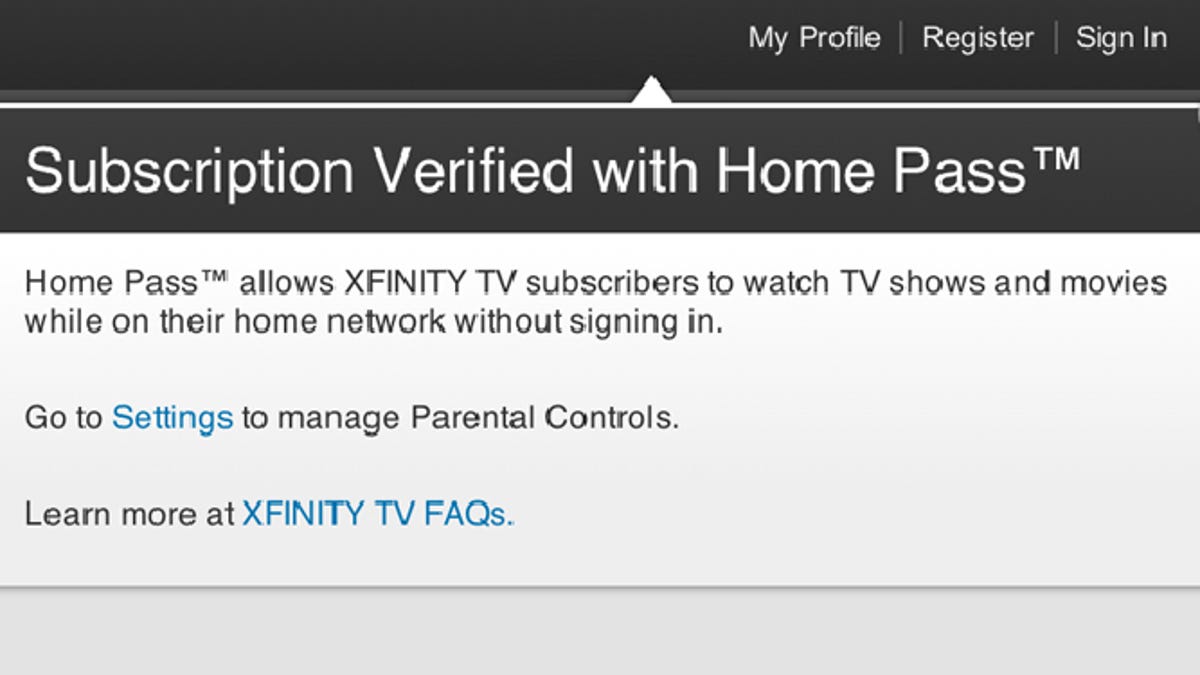Comcast cuts down log-ins to keep cord from getting cut
The pay-television provider ferrets out any reason users would turn to an online alternative, most recently removing prompts to log in to its online portal when using a home network.

"If your programming isn't on every screen, you are missing an entire generation," Chief Executive Brian Roberts said last month at the National Cable and Telecommunications Association conference.
With such high stakes, Comcast is smoothing out snags that could gives subscribers any reason turn to an online alternative, like Netflix or Amazon Prime Streaming, on their computers or Internet-connected devices.
Comcast launched Home Pass to allow subscribers of its Xfinity TV and Internet service to watch TV shows and movies on their home network without signing in.
It means customers accessing the Xfinity.com/TV website from within their home will be automatically logged in and will no longer need to sign in with a user name and password to access "TV Everywhere" content.
"TV Everywhere," is an idea that your favorite shows can be accessed from any device at any location. Despite its name and growing consumer demand for entertainment to be truly everywhere, the concept often bumps up against constraints from content creators and broadcasters who like to keep hold of the reins on where their products are seen.
Comcast's Home Pass grew out of a trial of this feature during the London Olympics and March Madness 2013. It is looking at ways to extend Home Pass to additional platforms, Matthew Strauss, a Comcast executive, said in a blog post.
In a similar vein, the company recently launched Facebook Connect so that customers link their Comcast.net account to their Facebook account for simpler sign-in. It also has secondary email identification and rolling remember me, which keeps users signed in to a designated computer for 30 days until you sign out.
The stakes are high. In the past decade, the cable TV industry has lost about 10 million subscribers, down from 66.9 million in 2001 to 56.4 million last year, according to market research firm SNL Kagan.

